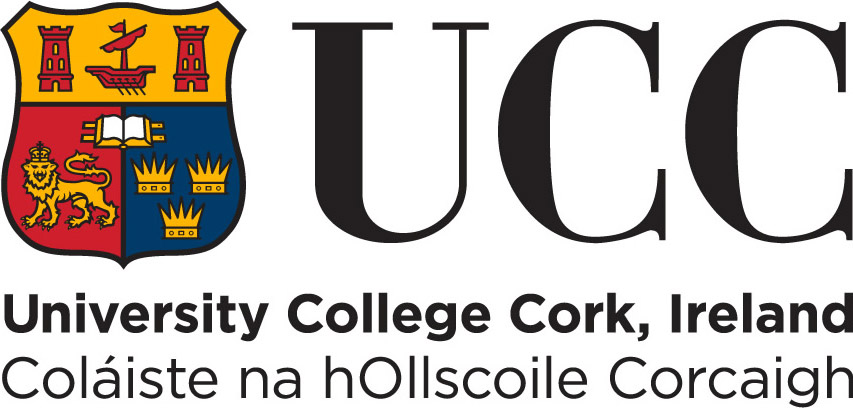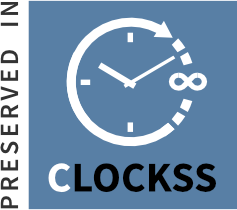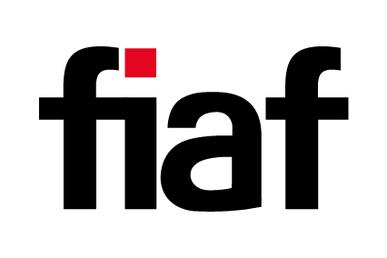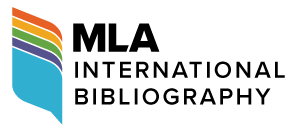The Corona Fastnet Short Film Festival
Schull, County Cork, 26-29 May 2011Barry Monahan
Despite the picturesque town’s remoteness, the wonderful international spread of countries represented by short films at the Schull festival is perfect testament to the imaginative resourcefulness of its organisers. This year Maurice Seezer, Pauline Cotter, Helen Wills, Maria Pizzuti, and the other members of the steering committee brought 131 short films to Schull from countries as diverse as New Zealand, America and Lebanon. The small town proved itself perfectly capable of being the active hub of an energetic and sprawling global medium.
Whether or not given nations produce cinema with a specific stylistic personality is a notion surely impossible to argue with any empirical accuracy. However, based on evidence from the festival, there are two possible cases in point that could sustain this thesis. A programming of seven short films from Mexico and eight from Japan in two distinct events demonstrates significant aesthetic coherence across the national directors’ projects; the former—broadly speaking—sharply coloured and tonally saturated, with strong pacing, while the latter more stylistically muted.
In appropriate counter-balancing and complement to the coherent identities of these national cinema sets, the rest of the festival provided a rich plethora of diverse short film styles, tones, themes and genres from around the world. Notwithstanding recent financial setbacks here, the Irish short film canon held up incredibly well against its international counterparts. Both in terms of innovation and creativity, the sixty shorts from Ireland offered a colourful range of talent that bodes incredibly well for the evolution of feature production on these shores. Outstanding among these were both of Eamonn Colfer’s comedies Know Your Enemy and Templetown; dark, satirical reflections on two of the main Irish monolithic institutions to undergo severe criticism in the 1990s (the Garda Síochána and the Catholic Church, respectively). Johnny Cullen’s Happy Birthday Timmy works on a comical revelation “beat”, and Peter McDonald’s Pentecost plays with certain comic irreverence directed at the Church. Maria O’Connor’s The Line tells a straightforward story of two writers. One accidentally discovers the rejected opening line of another’s novel and uses it to remarkable financial success, while the original author becomes a down-and-out. Working with excellent dramatic timing, the film could be read as a metaphor for social division in Celtic Tiger Ireland; a place where some succeeded on the backs of certain silenced social minorities who were simultaneously failing. Conor Horgan’s Deep End Dance offered a lyrically choreographed underwater dance performance, while documentaries such as Gearagh Memories (Robb Bradstock), The Bookbinder’s Daughter (Denis Murphy) and Rat’s Island (Mike Hannon) presented intimate, talking heads revelations of the lives of Irish natives.
In another innovative move by the organisers, the diversity of cinematic material was matched by the variety of screening locations; both regular and more eccentric (some films were screened in a horse box). While the twenty programmes of short films were screened chronologically across the weekend in the Village Hall, the same sets were also played in loops on smaller screens in bars, cafés and shops around the village. This quirky aspect of the festival not only created a degree of conviviality among patrons whose paths would inevitably keep crossing in transit from venue to venue, but it also allowed them to catch up on short films that they might have missed on the main “Village Hall” programme.
Of the internationally submitted shorts a selection of recognisable “short film” themes and tonal qualities emerged, but with a rendering frequently very imaginative in their spin and creative in their design. A selection of these categories includes: the “chance encounter” film (Buon giorno sayonara, by Karen Hope and I Don’t Want 2 B UR Friend, by Daniel Belkin); the “epiphany” or “revelation” film (Passing, by David Freyne and Mamis kleiner helfer, by Michael Lavelle); the “mental distortion” film (La Pièce, by Marc Joly-Corcoran and Bed 20, by Leonard Martin); the experimental film (Jittertree, by Tom Bailey and Entre parades de agua, by Rosa Martha Fernández); and finally, the “temporal play” film (A Question of Time, by Radoslaw Stenski and Tick Tock, by Ien Chi).
None of the three screened feature-length films was for the faint-hearted, all being powerful personal and public reflections on disturbing aspects of the human condition. Not only did the festival provide access to these remarkable cinematic experiences, but audiences were invited to attend question and answer sessions with each director immediately after the screening. As if I Am Not There, directed by Juanita Wilson, narrates the true story of human degradation and devastation suffered by women in rape camps during the Bosnian war in the 1990s. Its protagonist, Samira is caught in the appalling situation, and as the film unfolds it concentrates through her point of view on the possibility of a future after the war. Marika Griehsel’s documentary feature Resolution was thematically strongly connected to Wilson’s film in its approach to rape and war. Geographically situated in Africa and the Balkans, the film gives voice to victims of atrocious sexual violence during the conflicts in question. Accompanying its documentation of the harrowing narratives is its motivation to activate and rubber stamp UN resolution in 1960, which gave that organisation the power to prosecute the perpetrators of such violence. On a more personal and private level, Carmel Winters’s film Snap tells the story of psychological abuse and illness that has plagued the represented family for three generations. In a perfect merging of form and content, Snap innovatively captures the perspective of the psychological infirmity by playing structurally with the basic substance of the medium: diluting and sharpening colour, distorting sound and varying the pacing of the editing. Its non-linear narrative structure also demanded more of the audience in investing a relationship—sometimes quite problematic—with the characters, and in submerging themselves into their story world. Within the context of three feature films that required significant intellectual attention and emotional involvement by spectators, it was a huge benefit to have had the opportunity of hearing the voices of the directors in interviews after the screenings. This also mediated the experience and somewhat relieved the extreme emotional intensity of the engagement.
Interwoven across the schedule were several other cultural events in which patrons of the four day festival could partake. So diverse and absorbing were these—sometimes related directly to cinema, at other times less so—it would be difficult to designate them as “festival highlights” in any way by suggesting that some were more interesting than others. The “Connections” project aimed at making a short film embarking on the whole project—from script to screen—on the first evening, and screening the result at 19.00 on the Sunday of the festival. An array of other classes and master classes was open to first-time and more practiced filmmakers and included a post-production sound session given by Killian Fitzgerald, and a “script to screen” master class given by the highly-respected director/writer, Jack Gold. Fran Keaveney, currently the short films executive at Bord Scannán na hÉireann (the Irish Film Board), gave a presentation on pitching the screenplay to funding bodies, and brought great insight and many useful guidelines to prospective producers. Among other fascinating interviews, Gerard Stembridge spoke to Carmel Winters, Juanita Wilson and Rebecca Daly about making the transition from the short film to the feature, and on the final day of the festival Eugene McCrystal talked about the role played by the colourist in the post-production process. These presentations offered useful information for producers and directors who had gathered for the festival, and introduced a didactic element that makes the Schull event stand out among film festivals.
Literature was also well represented with readings of their latest novels by authors Steve Baker and Gerard Stembridge. Baker read from Slabscape, and Stembridge from Unspoken, and both performances appropriately took place in the intimate setting of “Chapter One” bookshop. After each reading there was an opportunity to chat casually with the writers about their motivation, style and themes and, in the case of Stembridge (also a well-established screen-writer, playwright and director), how he felt the different narrative formats facilitated differing modes of expression or areas of thematic exploration. Both events played to a packed house and went down extremely well.
Late in the afternoon of the final day, in a spectacular climactic interview Greg Dyke—who was appointed as the Chair of the British Film Institute in 2008 and has many years of experience of film and television—interviewed Daivd Puttnam and Sandy Lieberson. The latter has an impressive CV of film experience and acted as an agent for some of the most famous names in cinema such as, among others, Sergio Leone and Peter Sellers. Puttnam’s presence was not surprising in the light of his constant and generous involvement in supporting and encouraging young filmmakers and filmmaking clubs in Cork city and its environs. This gesture is all the more magnanimous when his greatness is considered from his portfolio of productions, including: Midnight Express, Bugsy Malone, The Mission, The Killing Fields and the Academy Award-winning Chariots of Fire. This discussion was followed by a screening of the weekend-produced short film, and this was followed in turn by the awards ceremony. Category winners were as follows:
Best of Festival: El último canto del pájaro cú (Alonso Ruizpalacios)
Best Irish Short Film: Shoe (Nick Kelly)
Best Young Filmmaker (under twenty-two): Happy Birthday Timmy (Johnny Cullen)
Best in Cork: Rat’s Island (Mike Hannon)
Best Drama: Mamis kleiner helfer (Michael Lavelle)
Best Comedy: Nietzsche No. 5 (Shaun O’Connor)
Best Documentary: Rat’s Island (Mike Hannon)
Best Experimental: The Streets of the Invisibles (Remo Rauscher)
Best Dance: Deep End Dance (Conor Horgan)
Best Animation: Luna (Raúl Cárdenas and Rafael Cárdenas)
Best Direction: La mina de oro (Jacques Bonnavent)
Best Screenplay: Pentecost (Peter McDonald)
Best Original Music: El último canto del pájaro cú (Tomás Barreiro)
Best Cinematography: El último canto del pájaro cú (Emiliano Villenueva)
Suggested Citation
Monahan, B. (2011) The Corona Fastnet Short Film Festival, Schull, County Cork, 26-29 May 2011. Alphaville: Journal of Film and Screen Media, 1, pp. 132–135. https://doi.org/10.33178/alpha.1.13.
Barry Monahan lectures in the history and aesthetics of Irish and other national cinemas, and film theory, at University College Cork. His recent monograph Ireland’s Theatre on Film: Style, Stories and the National Stage on Screen, published by Irish Academic Press in 2009, considers the relationship between the Abbey Theatre and cinema from the beginning of the sound period until the 1960s. He is a member of Alphaville’s International Advisory Board.









